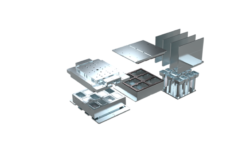OSF MyHealth Sign In ⏬⏬
Welcome to the world of OSF MyHealth Sign In, where access to your personal health information has never been easier. With OSF MyHealth Sign In, you can securely log in to your account and gain convenient online access to a wide range of medical services, empowering you to take control of your healthcare journey. From viewing test results and scheduling appointments to communicating with your healthcare providers, OSF MyHealth Sign In offers a user-friendly platform designed to streamline and enhance your healthcare experience. Discover the benefits of this comprehensive digital portal and embark on a path towards better health management today.
OSF MyHealth: Simplifying Healthcare Management
OSF MyHealth is a comprehensive online platform designed to streamline and enhance the management of healthcare services. Created by OSF HealthCare, a leading integrated health system in the United States, OSF MyHealth offers patients convenient access to various healthcare features and empowers them to take control of their well-being.
The platform’s user-friendly interface allows patients to schedule appointments, view medical records, communicate securely with healthcare providers, request prescription refills, and receive personalized health information—all from the comfort of their own homes. By providing these digital tools, OSF MyHealth aims to improve patient engagement, increase efficiency, and ultimately enhance the overall healthcare experience.
In addition to patient-centric features, OSF MyHealth also offers benefits for healthcare providers. Through the platform, providers can efficiently manage patient data, securely communicate with patients, and streamline administrative tasks. This integration helps healthcare organizations optimize workflows, reduce paperwork, and deliver more personalized care.
With a strong emphasis on privacy and security, OSF MyHealth utilizes advanced encryption technologies to safeguard sensitive patient information. The platform adheres to strict industry standards and guidelines, ensuring that confidentiality and data protection are prioritized at all times.
Sign In
Signing in is a common action on various online platforms and websites. It allows users to access their personal accounts, providing them with personalized experiences and additional features.
When you encounter a “Sign In” option, it typically means that you need to authenticate yourself by providing the required credentials. These credentials usually consist of a username or email address and a password. In some cases, additional security measures like two-factor authentication may also be implemented.
Once you have entered the correct login information, the system verifies your credentials and grants you access to the associated account. This process ensures that only authorized individuals can access the protected content or perform specific actions reserved for registered users.
Sign-in forms are often designed with user convenience and security in mind. They may include features like “Remember Me” to save login details for future visits, “Forgot Password” for password recovery, and “Sign In with [Third-party Service]” options for quicker authentication using existing accounts on other platforms.
It’s crucial to maintain strong security practices when signing in. This includes using unique and complex passwords, enabling two-factor authentication whenever possible, and being cautious of phishing attempts or suspicious login requests.
What is OSF MyHealth Sign In?
OSF MyHealth Sign In is an online portal provided by OSF HealthCare, a healthcare system serving patients in Illinois and Michigan. It allows users to access their health records, schedule appointments, communicate with healthcare providers, and manage their overall healthcare experience.
By signing in to the OSF MyHealth portal, patients can securely view their medical information, such as test results, medications, immunization records, and summaries of past visits. This convenient access to personal health data empowers individuals to take an active role in their own care, monitor their progress, and make informed decisions about their well-being.
The OSF MyHealth Sign In also enables patients to request prescription refills, receive reminders for upcoming appointments or preventive screenings, and securely message their healthcare team with non-urgent questions or concerns. This digital platform aims to streamline the healthcare process, enhance communication between patients and providers, and ultimately improve the quality and efficiency of care delivery.
It’s important to note that accessing the OSF MyHealth portal requires a valid account and login credentials provided by OSF HealthCare. Patients should consult with their healthcare provider or visit the official OSF HealthCare website for instructions on how to sign up and gain access to this valuable online tool.
MyHealth Sign In
MyHealth is an online platform that allows individuals to access and manage their personal health information. The sign-in process is an important step for users to securely access their accounts and avail themselves of various health-related services.
To sign in to MyHealth, users need to navigate to the official website and locate the sign-in page. Typically, there will be a designated field where users can enter their unique username or email address, followed by a password field. This two-step authentication process ensures that only authorized individuals can access the private health data stored on the platform.
Once the login credentials are entered correctly, users gain access to a personalized dashboard where they can view and update their health records, schedule appointments with healthcare providers, request prescription refills, receive test results, and communicate with their care team.
It’s crucial to prioritize the security of your MyHealth account by creating a strong and unique password, regularly updating it, and refraining from sharing your login details with anyone else. This helps safeguard sensitive health information and maintains confidentiality.
By utilizing MyHealth’s sign-in feature, individuals can conveniently manage their health-related tasks and stay connected with their healthcare providers at any time, fostering a more efficient and streamlined approach to healthcare management.
OSF Sign In
The OSF (Open Science Framework) is a web-based platform developed to support collaborative research and data management. It provides researchers with tools to organize, share, and track their scientific projects and data.
To access the features and functionalities of the OSF, you need to sign in to your account. The sign-in process involves providing your credentials, usually an email address or username, and a password that you have previously registered with the platform. Once you have entered this information correctly, you can proceed to log in to your OSF account.
Signing in to the OSF offers several benefits:
- Access to Projects: After signing in, you can view and manage all the projects you are associated with on the OSF platform. This includes creating new projects, collaborating with other researchers, and organizing project-related materials.
- Data Management: Signing in allows you to upload and store your research data securely on the OSF. You can also create structured storage for your data, making it easier to organize and share with collaborators.
- Collaboration: By signing in, you can invite other researchers to collaborate on your projects or join existing projects initiated by others. Collaborators can contribute to the project by adding and editing content, sharing resources, and participating in discussions.
- Tracking Project Activity: The OSF keeps a record of important project activities, such as file uploads, edits, and comments made by collaborators. Signing in allows you to access this activity log and stay updated on the progress of your projects.
Healthcare Sign-in: Streamlining Patient Access and Security
In the realm of healthcare, efficient and secure sign-in procedures play a vital role in ensuring smooth operations and safeguarding patient information. Healthcare sign-in systems have evolved over time, transitioning from traditional paper-based methods to digital solutions that offer enhanced convenience, accuracy, and data protection.
A common approach is the utilization of electronic sign-in systems, often integrated with patient management software. These systems typically employ a combination of hardware and software components to streamline the check-in process.
The primary element of a healthcare sign-in system is a user-friendly interface that allows patients to input their personal information, medical history, and reason for visit. This information is securely stored and made accessible to healthcare professionals, expediting the overall care process.
Moreover, many healthcare institutions opt for additional layers of security to protect sensitive patient data. This includes implementing authentication measures such as unique identification codes, passwords, or biometric identifiers like fingerprints or facial recognition.
Tablets or kiosks equipped with touchscreens are commonly used as self-service sign-in stations in healthcare facilities. They provide an intuitive and interactive platform for patients to input their details, choose appointment slots, and complete necessary forms. By reducing manual paperwork, these systems enhance operational efficiency and reduce administrative errors.
Furthermore, digital sign-in systems can integrate with electronic health record (EHR) systems, allowing seamless transmission of patient information to healthcare providers. This integration improves continuity of care, enables data sharing among different departments, and minimizes the need for redundant data entry.
Patient Login
Patient login is an essential feature in healthcare systems that allows patients to access their personal medical information and interact with healthcare providers through secure online portals.
With patient login, individuals can conveniently schedule appointments, view test results, request prescription refills, communicate with healthcare professionals via messaging systems, and access their medical records from the comfort of their own homes.
The login process typically involves creating a unique username and password or using other authentication methods like email verification or two-factor authentication for enhanced security.
By having a patient login system in place, healthcare organizations can improve the overall patient experience by providing easy access to relevant medical information and fostering better communication between patients and healthcare providers. It also streamlines administrative tasks, reduces paperwork, and enhances data privacy and confidentiality.
Furthermore, patient login portals often offer additional features such as educational resources, appointment reminders, and the ability to update personal information, ensuring that patients stay informed and actively participate in their healthcare journey.
Medical Records Access
Access to medical records is a crucial aspect of healthcare management. It involves the ability of authorized individuals, such as patients, healthcare providers, and relevant parties, to obtain and review medical information pertaining to an individual’s health history.
In today’s digital age, medical records are increasingly being stored electronically, allowing for easier access and sharing among healthcare professionals. Electronic medical records (EMRs) provide a centralized repository of patient information that can be accessed securely by authorized personnel.
Medical records access plays a vital role in ensuring efficient healthcare delivery and continuity of care. Here are some key points regarding medical records access:
- Patient Empowerment: Providing patients with access to their medical records empowers them to take an active role in managing their health. They can review test results, treatment plans, and medication histories, enabling better understanding and engagement in their own care.
- Clinical Decision-Making: Healthcare providers rely on accessing medical records to make informed decisions about diagnosis, treatment options, and ongoing care. Having comprehensive access to a patient’s medical history helps clinicians form accurate assessments and develop appropriate treatment plans.
- Coordination of Care: Accessible medical records facilitate seamless communication and collaboration among different healthcare providers involved in a patient’s care. It allows specialists, primary care physicians, and other relevant stakeholders to share critical information, reducing errors and improving overall care coordination.
- Privacy and Security: While it’s important to facilitate medical records access, ensuring the privacy and security of sensitive health information is paramount. Robust security measures, such as encryption and strict access controls, help safeguard patient data from unauthorized access or breaches.
My Health Portal
My Health Portal is an online platform designed to empower individuals to take control of their health and well-being. It serves as a centralized hub where users can access and manage their personal health information, connect with healthcare professionals, and engage in various health-related activities.
The portal allows users to securely store and retrieve their medical records, including test results, prescriptions, and immunization history. This convenient access to health information enables patients to have a better understanding of their health status and make informed decisions about their care.
Additionally, My Health Portal provides features for scheduling appointments, requesting prescription refills, and communicating with healthcare providers through secure messaging. Users can conveniently manage their healthcare needs without the need for phone calls or in-person visits, saving time and streamlining the care process.
The platform also promotes health and wellness by offering personalized tools and resources. Users can track their fitness goals, monitor vital signs, and receive relevant educational materials tailored to their specific health conditions. These features aim to empower individuals to lead healthier lifestyles and actively participate in managing their overall well-being.
With its user-friendly interface and emphasis on privacy and security, My Health Portal strives to enhance the patient experience and promote proactive healthcare engagement. By leveraging technology, it facilitates better communication and collaboration between patients and healthcare providers, ultimately improving the efficiency and effectiveness of healthcare delivery.
What is an Online Medical Account?
An online medical account is a digital platform that allows individuals to manage their healthcare information and access medical services remotely through the internet. It serves as a virtual hub for storing personal health records, scheduling appointments, communicating with healthcare providers, and accessing various medical resources.
The key features of an online medical account typically include:
- Health Record Management: Users can securely store and update their medical history, test results, medications, allergies, and other relevant health information.
- Appointment Scheduling: Patients can conveniently book and manage appointments with doctors, specialists, or healthcare facilities.
- Telemedicine: Many online medical accounts offer telemedicine services, enabling patients to have virtual consultations with healthcare professionals via video calls or chat.
- Prescription Management: Users may have the option to request prescription refills, view medication instructions, and receive reminders for taking their medications.
- Health Education: Online medical accounts often provide educational resources, articles, and videos to help individuals learn about various health conditions, preventive measures, and general well-being.
By utilizing an online medical account, patients can experience greater convenience, improved access to healthcare services, and better control over their health information. It can streamline communication with healthcare providers, reduce administrative hassles, and facilitate more proactive involvement in managing one’s health.
Please note that the availability and specific features of online medical accounts may vary depending on the platform or healthcare provider offering them.



